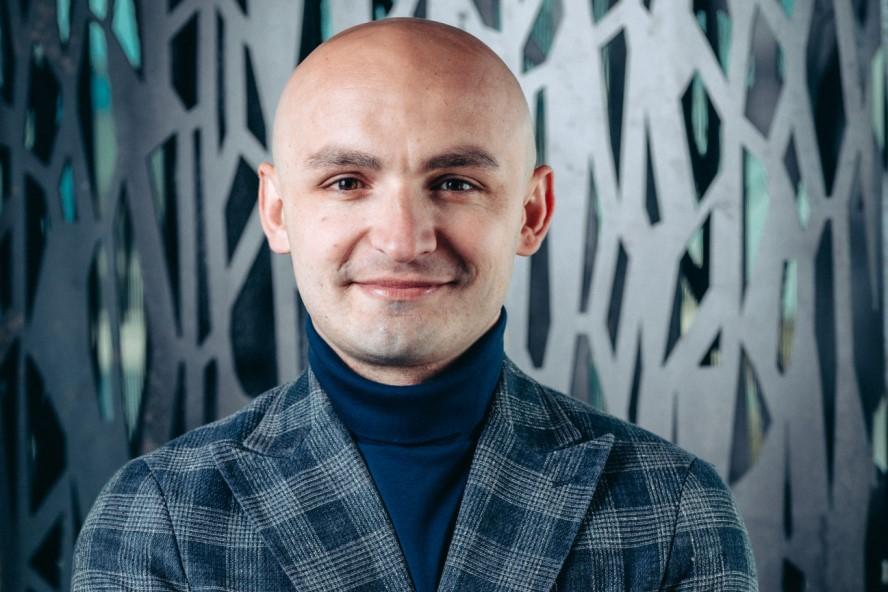-

Hear from Professor Monica Toft
Learn how Professor Monica Toft is shaping the study of global affairs and diplomacy at Fletcher.
Hear from Prof. Toft -

Explore Fletcher academics in action
Fletcher Features offers insights, innovation, stories and expertise by scholars.
Get global insights -
Get application tips right from the source
Learn tips, tricks, and behind-the-scenes insights on applying to Fletcher from our admissions counselors.
Hear from Admissions -

Research that the world is talking about
Stay up to date on the latest research, innovation, and thought leadership from our newsroom.
Stay informed -
Meet Fletcherites and their stories
Get to know our vibrant community through news stories highlighting faculty, students, and alumni.
Meet Fletcherites -

Forge your future after Fletcher
Watch to see how Fletcher prepares global thinkers for success across industries.
See the impact -

Global insights and expertise, on demand.
Need a global affairs expert for a timely and insightful take? Fletcher faculty are available for media inquiries.
Get in Touch
Combatting Russian Disinformation
Zviad Adzinbaia (MALD 18) and his Digital Diplomacy Task Force work to de-platform harmful social media accounts.

Zviad Adzinbaia (MALD 18) is from the Abkhazia region of Georgia, a place where only Nauru, Nicaragua, Russia, Syria, and Venezuela recognize its sovereignty.
The reality is that Abkhazia is a Russian-occupied territory, and Adzinbaia, who grew up homeless after the 1993 Russia-orchestrated war, is an internally displaced person.
Reflecting back to that time, Adzinbaia says, “I lost my home, which was a material loss, but I could have lost my life. In a literal sense, I almost lost a future because had that war not happened — instigated by Russia, managed by Russia — my future would have looked different. That said, I might not have come to study at Fletcher.”
He contends it was not up to Russia to decide his future and the future of hundreds of thousands of Georgians, and points out that in Georgia, every 10th person is like him: internally displaced by force.
Adzinbaia cares deeply about those who have been forcibly displaced, and is committed to protecting their rights and helping secure their futures.
Shortly after Russia invaded Ukraine in early 2022, he founded the Digital Diplomacy Task Force. He explained that what he experienced firsthand as a child is happening all over again, and it is profoundly unjust to him.
“Ukraine is very, very personal to me,” says Adzinbaia, who returned to Fletcher as a as a Ph.D. fellow in international security and digital diplomacy. “It’s a reflection of my life and I feel committed — obliged — to do something to help Ukraine and its people.”
His Digital Diplomacy Task Force is a pro-bono team of specialists in cybersecurity, digital diplomacy, and disinformation that has been working with Google, Meta, and other such companies to de-platform Russian social media accounts that propagate disinformation. The Task Force has cited Russian accounts’ repeated violation of the UN International Covenant on Civil and Political Rights (ICCPR), specifically Article 20: “Any propaganda for war shall be prohibited by law.”
As Adzinbaia explains it, just as Russian forces have been active on the battlefield, they have been similarly engaged online. For example, the Russian Embassy in London tweeted on July 29 that Ukraine’s Azov Battalion militants deserved a “humiliating death.” A #StopNaziUkraine hashtag accompanied the tweet. Twitter determined the post had violated its rules regarding hateful conduct.
Such are the types of restrictions Adzinbaia and the Task Force would like to continue to see.
However, flagging troublesome posts can be a time-consuming and inefficient process of fact-checking and debunking disinformation. De-platforming, in comparison, could eliminate swaths of Russia’s persistent and fabricated information that NATO is an expansionist power, the United States is running biological weapons labs in Ukraine and Georgia, and that Ukraine has never been a sovereign nation.
“It’s a lot more difficult to contain, stop, and eradicate disinformation once it’s out there than it is to prevent its exposure in the first place,” Adzinbaia says. “So, you want to do something more proactive than countering coordinated misinformation or disinformation that has already been communicated.”
Russian disinformation, he explains, is twofold. First, it targets Russian consumers to sway its own population of the invasion’s value. Second, it targets international audiences, including the United States. Through external consumption and amplification, Russian accounts can achieve their goals by convincing policymakers, via their constituents, to divert funding from Ukraine.
De-platforming would eliminate one of Russia’s tools.
“I would be extremely happy if succinct, clear, and coordinated de-platforming measures are taken across the social media against the Kremlin, Kremlin-affiliated, Kremlin-controlled, and Kremlin-supported accounts and networks that effectively spread war propaganda that claims lives, justifies atrocities and war crimes and damages Ukrainian reputation,” says Adzinbaia.
“My team and I want them to be suspended until their behavior changes and I don’t see Russia changing its behavior anytime soon. And further, I want other dictators and oppressors in the world to be disallowed on platforms created to promote freedom of speech.”
It’s not only about the Russian government, he says. “It’s about fundamental rights that we cherish, and we’re going to do something to defend them.”
Read the November 1, 2022 Digital Diplomacy Task Force Update.
Read more about Fletcher's MALD degree program.

